RECOIL OFFGRID Preparation Preparedness Lessons Learned from the Recent California Blackouts
In This Article
People, on average, like to think that they are prepared for whatever life throws at them. If you are a concerned citizen who reads this type of article, you probably consider yourself sufficiently “prepped” for whatever cataclysmic event comes your way. Much of mainstream preparedness media focuses on being prepared for a “Big Event” like an electromagnetic pulse killing off all electronics, or a nuclear, biological, or chemical attack from a terrorist organization or rogue nation-state. This also includes massive natural disasters, such as a tsunami or hurricane which wipes out coastal metropolitan centers.
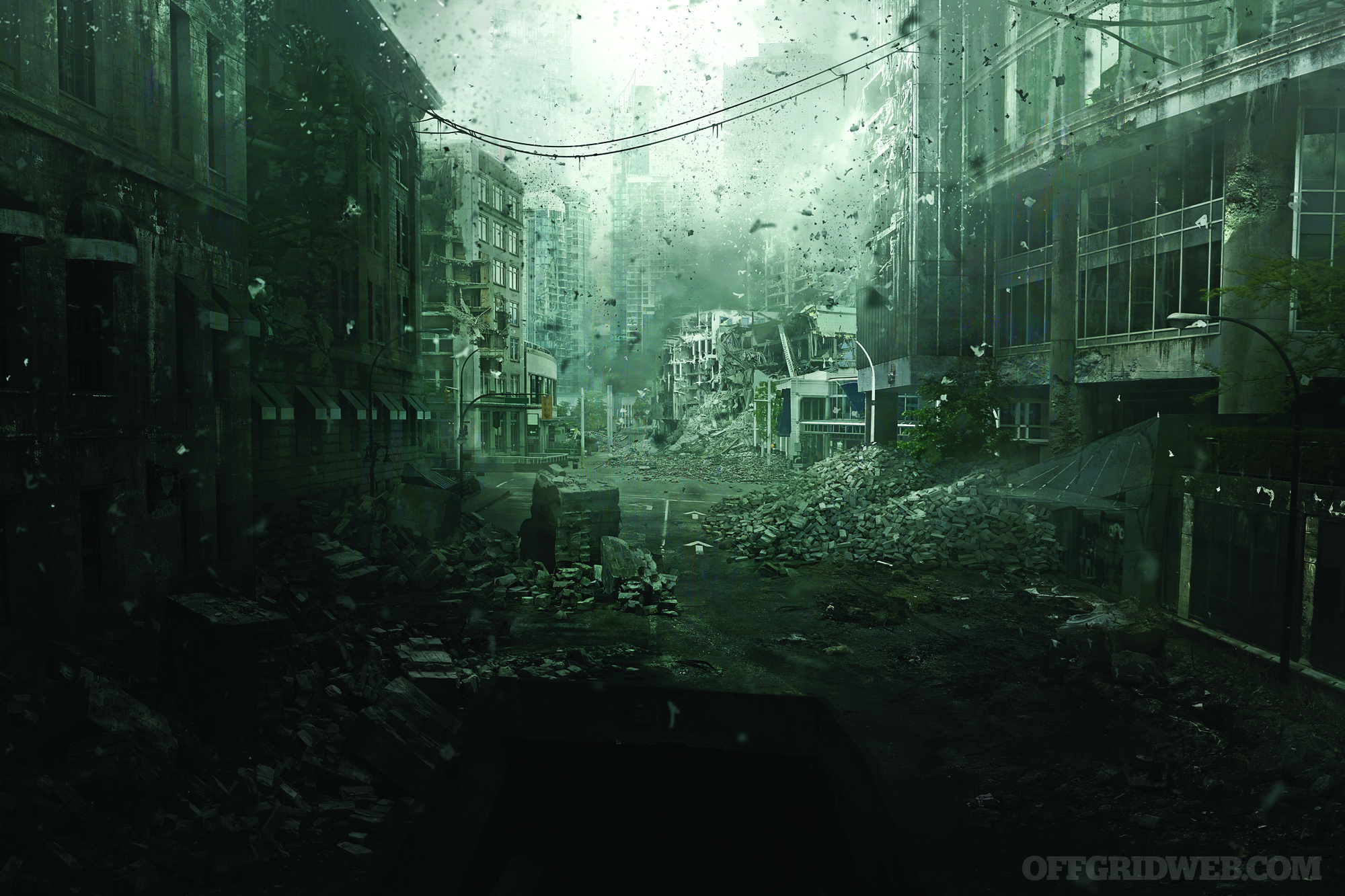
Many people think of disasters as world-ending catastrophes, rather than small-scale, short-term events.
But, realistically, we need to be most prepared for events that, although smaller in scale, can have very real and serious impacts on our lives and safety. A more mundane crisis that only affects a smaller geographical area or population can be just as devastating in the short term. I recently learned this lesson the hard way.
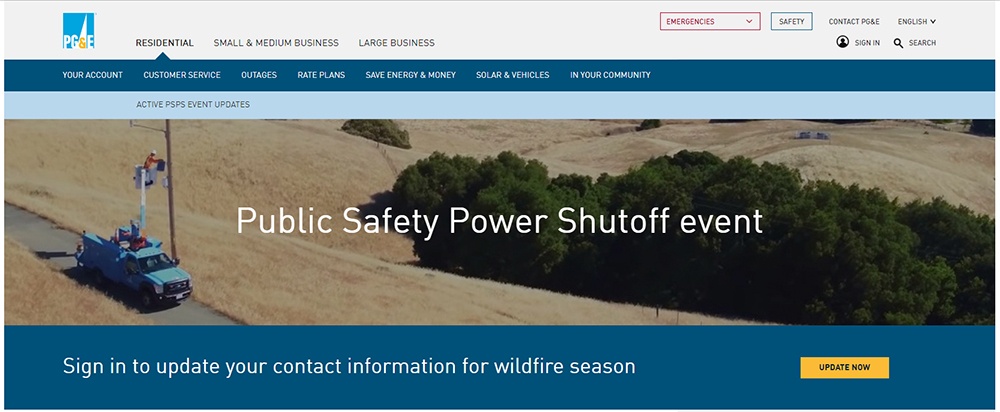
“Public safety power shutoff” was the official term used by the utility provider to describe this incident.
As a resident of California I’m used bad decision making by politicians and others. So, I guess I shouldn’t have been surprised when Pacific Gas and Electric (PG&E), the state’s largest provider of electricity, announced they would be shutting off power to hundreds of thousands of customers this month. PG&E makes its case for this “Public Safety Power Shutoff” in the optimistic-sounding video below:

Ostensibly this was done to prevent the types of wildfires that ravage the state every fall and winter. Investigations have indicated that several of the major wildfires in 2017 and 2018 — including the Camp Fire, the most destructive in California’s history — may have been caused by faulty PG&E electric power lines and equipment failure. So, PG&E’s solution was to de-energize power lines so they couldn’t inadvertently start a fire.
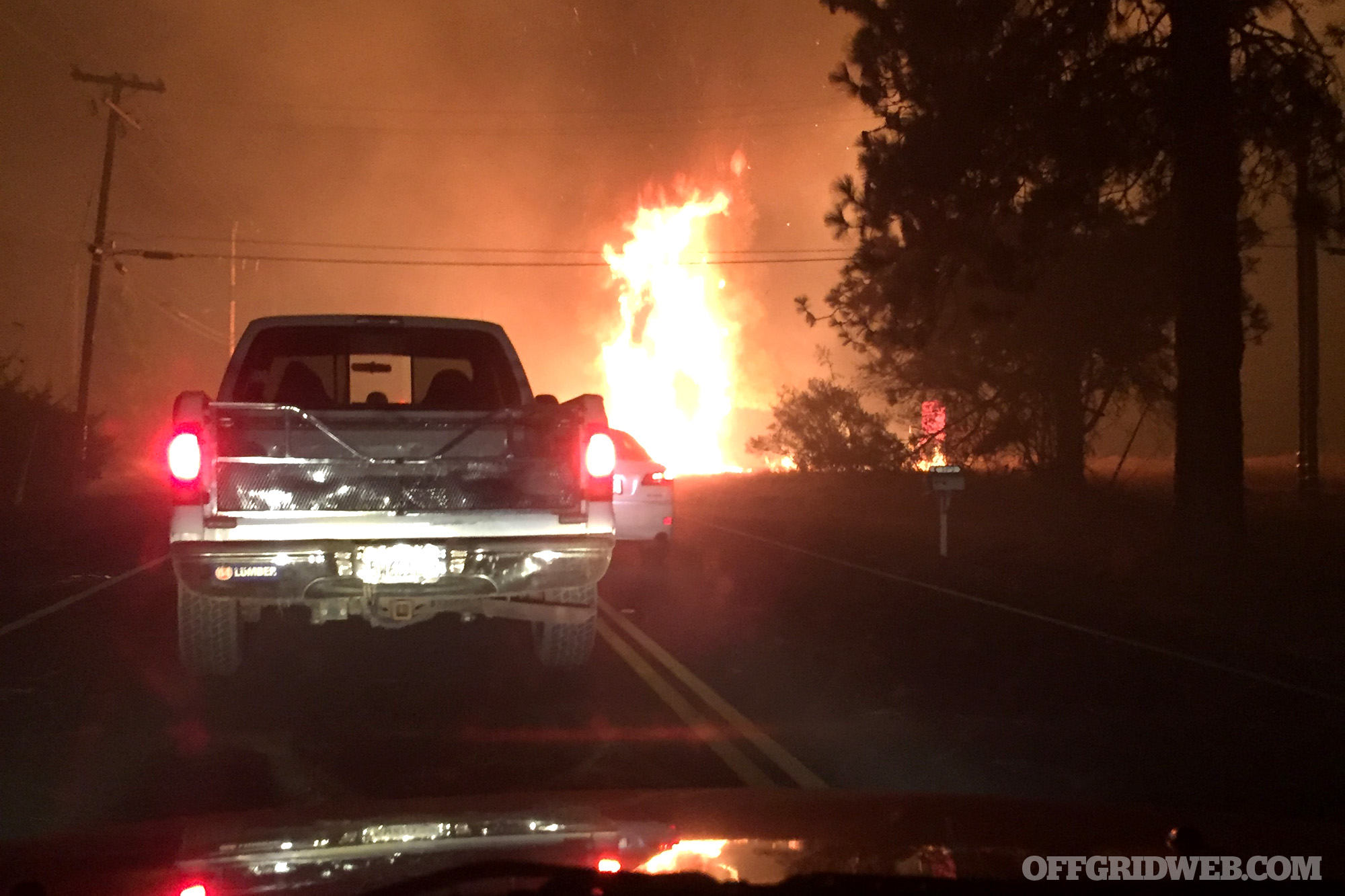
In the article linked above, we interviewed a CA resident who narrowly escaped the Camp Fire in 2018.
Regardless of the reason, when I heard of the pending shutdown, I got concerned. I live in a good-sized suburb nestled between three major cities. In this sea of humanity, a blackout is a huge problem. Resources like food and gasoline disappear quickly as people empty the shelves at supermarkets and gas stations are drained of their precious dinosaur juice. Non-functioning traffic lights cause already congested streets to turn into complete gridlock. Cell service becomes spotty, even non-existent. In the short term, this can lead to shortages of essential items to residents. Longer-term effects can be price gouging of those items and civil unrest. It’s medieval times in the Golden State.
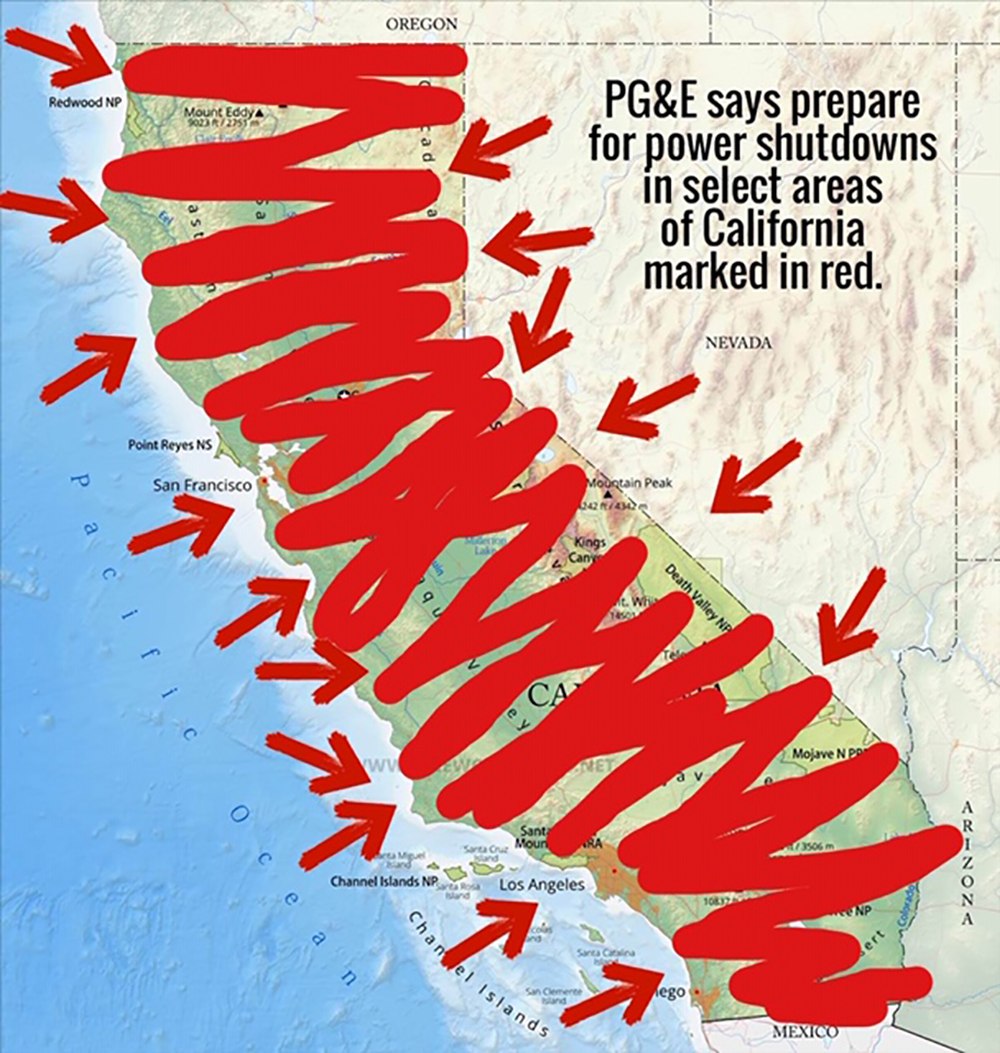
Outages could have affected any of more than 5 million customers, according to the company's web site.
I quickly realized I wasn’t sufficiently prepared for this situation. PG&E was forecasting blackouts lasting from 2 to 5 days. Adding to the difficulties was that the power provider couldn’t narrow down what parts of the state were going to be on the receiving end of a blackout or when it might occur.
Although I’ve given some consideration to emergency preparedness in the past, this was a wake-up call that I hadn’t given it enough. I wasn’t sure if I had enough food, water, gas and other items. However, there was one thing I was sure of — unlike many others in my state, I certainly wasn’t going to rely on the government to provide for my family’s needs. Here’s what I did in response, along with some lessons I came away with.
I did a quick assessment of what I already had around the house to decide what I needed to stock up on. I realized I had a lot of food, but most of it was refrigerated. I don’t have a backup power source for large appliances, so if the power went out and my fridge stopped working, my food would spoil. This was especially disconcerting to me because I had about twenty pounds of sausage from a pig I had harvested this summer which I didn’t want to see go to waste. I had coolers, but not enough ice. I wasn’t sure how accessible water would be or what its potability would be once our water provider was out of power, so that was a major concern as well. I quickly put together a list and headed out.
As soon as the supermarket opened, I loaded up on canned food, dry goods, water, ice, propane, and batteries. I then filled up the gas tanks in both of my cars. Surprisingly, despite feeling as though I was catastrophically late to the party, I didn’t have to wait in line at the market or the gas station. It wasn’t until after the power went out that people crowded those locations. Many were surprised to find out that gas stations were without power, resulting in pumps not operating. I may not have been fully prepared, but at least I wasn’t THAT unprepared.
History tells us that most power outages are short-duration events, not long-term ones. Based on what I knew of this situation, I felt no need to hang up concertina wire around the house and prepare for the end of days. I needed enough provisions to sustain my family for a week, at most.
That being said, I have a bug-out plan in place for a larger event like a catastrophic earthquake or some other major disaster. In retrospect, I was better prepared for the “big one” rather than a more-likely, short-term event in the comfort of my own home. A blackout isn’t as dramatic as some cataclysmic large-scale collapse of society. But it is a fairly common occurrence that, if it becomes a long-term problem, can have cataclysmic results. It doesn’t take much to disrupt our daily lives.
A short-term crisis doesn’t necessarily trigger the need to relocate. In my case, the power shutdown didn’t require my family to bug out. I also wanted to stay home because I was concerned about my residence being vulnerable to break-ins, since my alarm system and cameras wouldn’t be functioning.
Be prepared to defend your residence against threats if your alarm system is compromised. Looting is a legitimate risk after any major disaster.
In 2017, when fires swept through towns in Northern California, large numbers of criminals showed up to break into the abandoned houses. I witnessed this first-hand when I deployed up there as part of a law enforcement response. Crooks from all over descended on the abandoned residences to steal whatever they could. Officers arrested many opportunists who showed up to take advantage of the situation. I’ve seen the same thing occur during other natural disasters I have deployed to, such as Hurricane Andrew in 1992. Factor this into your plan, but also remember that your safety is a much higher priority than protecting your property. Looted items are replaceable. Family members are not.
If you do choose to go to your bug-out location, do it as soon as possible. Highways become choke points as everyone takes the same roads to get where they are trying to go.
In the military and in law enforcement I have responded to locations after major hurricanes, floods, and wildfires. One consistent theme I have observed is that during the initial phase of a major disaster — the first two to three days — local, state and federal government is completely unprepared. Their plans for evacuation, resupply, medical treatment, and controlling civil disorder are woefully lacking. You are on your own, so plan for it.
For the “planned power outage” here, the state and local government put out super-helpful hints like “have an alternative way to open your garage door.” Many local politicians gave passionate speeches condemning the power supplier. While these words did very little to improve the situation, all the resultant hot air most likely resulted in an increased risk of fire.
Think of the last time the power went out in your house. Did you catch yourself trying to turn on a light, fire up the television, microwave a meal, or charge your cell phone? We rely on electricity for everything, and it's easy to take it for granted.
Just prior to this event, my son and I had gone on a camping trip. This proved to be fortuitous. I had propane for our camp stove (the backup plan to my outdoor grill), batteries for lanterns and flashlights, and so on.
Camping is a good dry run for prepping. The location my son and I had camped at was pretty austere so if you didn’t bring it with you then you had to do without it. The Coleman two-burner stove is excellent for preparing all kinds of meals. I have both battery- and propane-powered lamps which became essential for keeping the house illuminated. We have a Yeti cooler which, when stocked with ice, keeps food preserved for days — just the thing for my precious pork! My camping kit includes seemingly unimportant items like single-serve packets of condiments (ketchup, mayo, mustard) and freeze dried coffee. These aren’t essential to survival, but they’re sure nice to have and make the lean times a little more bearable.
I had charged all the portable electronics. I also made sure not rely on them too much, since I knew cell service might be down. If there are important items like maps or other documents that can only be accessed over the internet, make sure you plan accordingly by printing them out.
So, how did it all turn out? Surprisingly, my neighborhood was spared from the outages. There were roving blackouts in surrounding counties, so fires were supposedly prevented, or PG&E made their point, whatever the case may be. But, as is often the case with disaster preparedness, we thankfully didn't experience the worst-case scenario we prepared for.
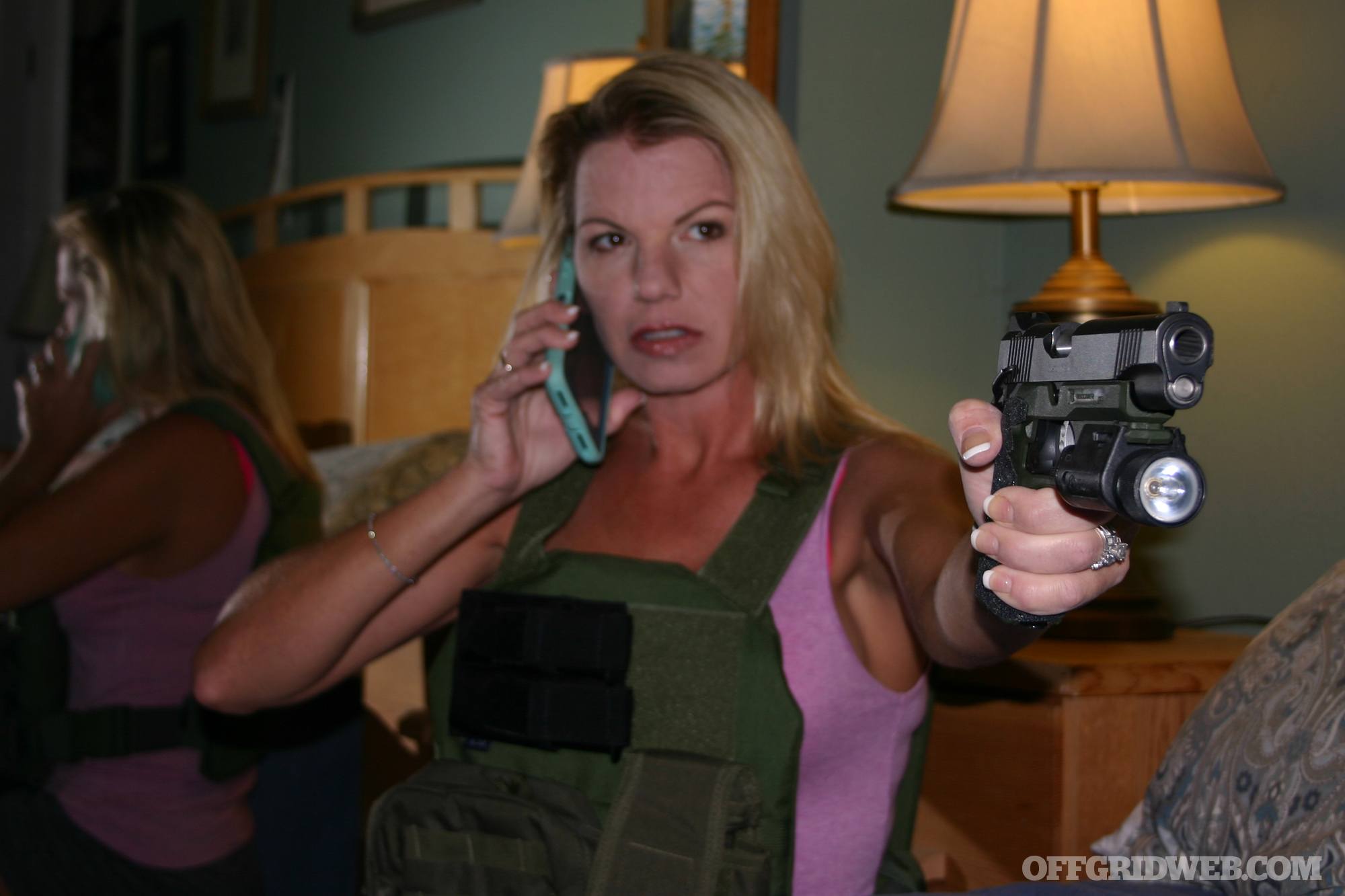
Being prepared for no lights also means being prepared for no alarms, and potentially no cell service.
In this particular instance we had been forewarned about the blackouts. When a weather event or natural disaster causes one, which is more often the case, you won’t have the advantage of knowing it is coming. As if to underscore this point, while I was working on this article, we were hit with a 4.6 magnitude earthquake. For those not living on the Left Coast, that’s a small one, just enough to rattle the windows and knock items off the shelves of stores. Overall, little to no damage was done. However, it served as yet another reminder that you can’t predict when the next disaster will arrive.
Even if your preparations lead to self-righteous neighbors calling you paranoid after a potential disaster fizzles out, it’s always better to be prepared. More importantly, I now have the necessary supplies on hand to survive a short-term disaster — supplies I should have had in the first place.
Nick Perna is a Sergeant with the Redwood City Police Department in Northern California. He has spent much of his career as a gang and narcotics investigator. He served as a member of a Multi-Jurisdictional SWAT Team for over fifteen years. He previously served as a paratrooper in the US Army and is a veteran of Operation Iraqi Freedom. He has a Master’s Degree from the University Of San Francisco. He is a frequent contributor to multiple print and online publications on topics related to law enforcement, firearms, tactics, and issues related to veterans.
 STAY SAFE: Download a Free copy of the OFFGRID Outbreak Issue
STAY SAFE: Download a Free copy of the OFFGRID Outbreak Issue
No Comments